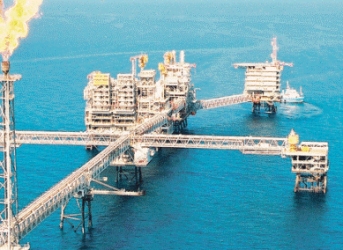Could this be the first step in defeating the Islamic State? In an unexpected move Sunday, Saudi Arabia, the United Arab Emirates and Bahrain agreed to return their ambassadors to Qatar, signaling an end to an eight-month rift over Doha's support for Islamist groups, according to a statement made by the Gulf Cooperation Council.
If all sides respect the agreement this could well put to rest the holy oil war that has been going on behind the scenes as the oil-rich countries in the Gulf were opposed not only politically, but also on religious grounds with Qatar. When it was not buying up the latest European soccer team, or Swiss bank, it was meddling in the affairs of other Arab states.
The news came after an emergency meeting held in the Saudi capital Riyadh to discuss the dispute that erupted following Qatar's support of Islamist groups that were seen as supporting or engaging in terrorist activity. Qatar’s foreign policy was seen as interfering in the affairs of other countries, calling on the other rich Gulf States to rally their resources, including their oil and gas generated richness to combat the rising threat of extremist Islamists.
Related: The Economic And Strategic Implications Of Low Oil Prices
In an unprecedented move, the three Gulf countries withdrew their ambassadors from fellow GCC member Qatar in March, accusing it of undermining their domestic security through its support of the Islamist movement, the Muslim Brotherhood.
The GCC statement said that Sunday's meeting had reached what it described as an “understanding,” meant to turn over a new leaf in relations between the six members of the Gulf organization, which also includes Kuwait and Oman.
"Based on that, the kingdom of Saudi Arabia, the United Arab Emirates and the Kingdom of Bahrain decided to return their ambassadors to the state of Qatar," the statement said.
This marks an important step in the region’s fight against the so-called Islamic State, which is perceived as a real threat by the other GCC countries. This agreement also marks an important political victory for Saudi Arabian influence in the region.
Qatar, much like fellow GCC countries Saudi Arabia and the UAE have used their oil and gas revenues to influence events in other Middle Eastern countries by supporting one or more sides in the many conflicts that are currently unfolding in the region.
Indeed Qatar has been active in Libya, Egypt, Lebanon, Syria, Iraq and Yemen. Qatar is often seen as somewhat of a maverick and an enigma in the region. It is one of the smallest of Arab states, but has one of the largest egos in the region and beyond. With a population of only about 500,000 people (and 1.5 million expatriate workers) it tried to drive policy in several countries in the region. It supports (or at least did so until Sunday night) the radical Islamists, yet has sort of diplomatic relations with Israel. It provided funds to the IS, yet continues to host the largest US military base in the Gulf region.
The UAE and Saudi Arabia have both listed the Muslim Brotherhood as a terrorist organization and look upon political Islam as a challenge to their own systems of dynastic rule.
Qatar is seen to have been supportive of the Brotherhood in Egypt and the UAE, and more recently in Libya. Doha has allowed several Muslim Brotherhood members to set up residence in Qatar, including the highly controversial preacher, Sheikh Youssef al-Qaradawi, to whom they have granted citizenship.
Related: Report Finds Gulf States Unstable Despite Resource Wealth
Qatar has established one of the more controversial international television channels –al-Jazeera – whom many Arab countries accuse of being far too supportive of the Muslim Brotherhood. Many analysts say that the three al-Jazeera journalists who are currently detained in Egypt was a move by Egypt to impose its stamp on the region.
ADVERTISEMENT
Riyadh and the United Arab Emirates also see the Doha-based Al Jazeera news channel as being a Muslim Brotherhood mouthpiece -- Qatar denies these accusations, saying it hosts all political and religious tendencies.
Reuters reports that diplomats in Doha said that Qatar promised the UAE that the Brotherhood would not be allowed to operate from the country. There was no immediate confirmation of this.
By Claude Salhani of Oilprice.com
More Top Reads From Oilprice.com:
- Oil: A Blessing And A Curse For The Middle East
- How Safe Are Turkey’s Oil And Gas Pipelines?
- U.S. And Australia Chasing Qatar for LNG Supremacy


















